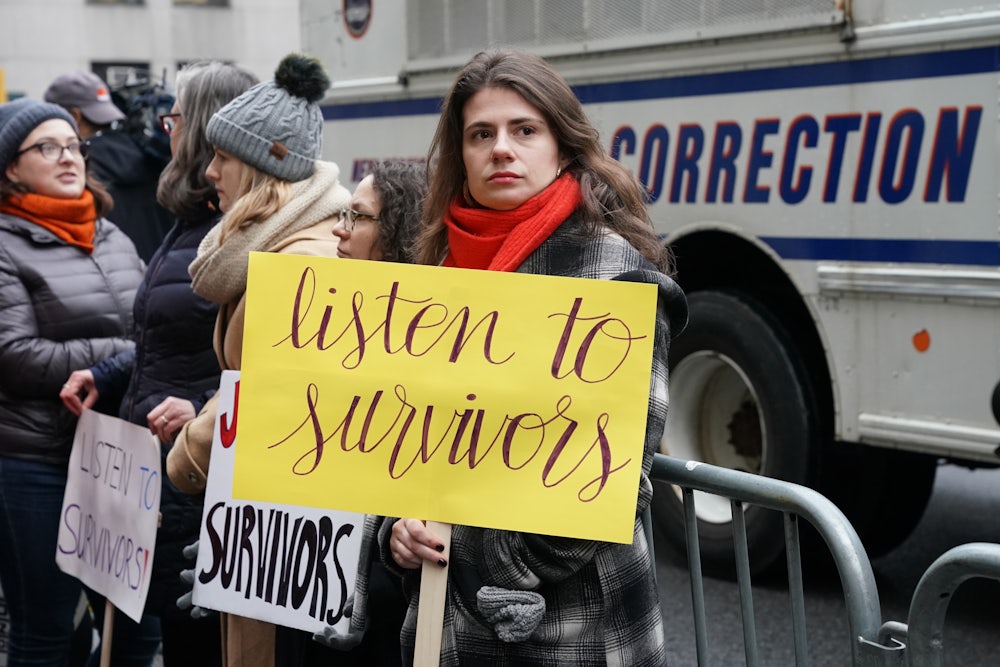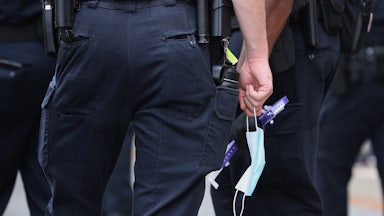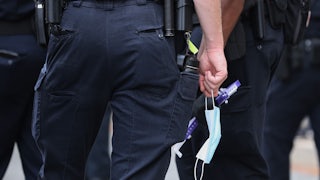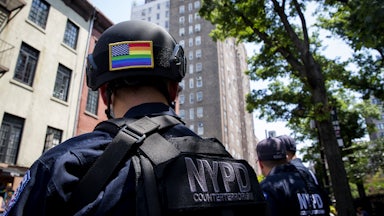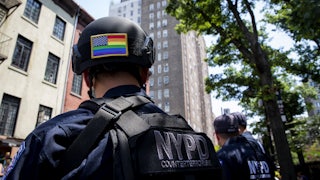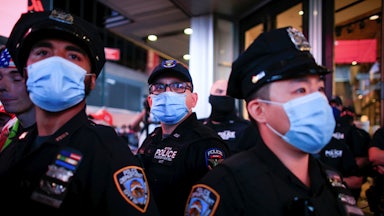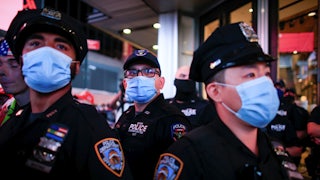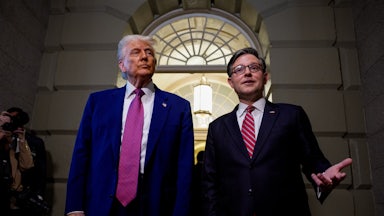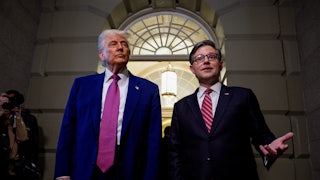Last week, the New York City council held a hearing on the New York Police Department’s Special Victims Division, the unit that investigates rapes and other forms of sexual assault. In recent years, an increasingly harsh spotlight has been trained on the NYPD’s long-standing mishandling of rape cases. In 2018, the city’s internal watchdog issued a report critiquing the Special Victims Division, finding that it was not only understaffed but that its officers were ill equipped to competently investigate sexual violence. The solutions, according to the report, were twofold: more officers and better training. In the wake of the report, the city council passed a suite of laws mandating that SVD officers be trained on how to work with survivors of sexual violence. Left unsaid was a question that abolitionist-minded feminists have long raised: How do you use police to address sexual violence when they themselves are part of the problem?
Three years later, not much has changed. (It turns out that sensitivity training delivered via PowerPoint isn’t all that’s required.) The virtual city council hearing made for brutal listening. It included testimony from rape survivors who had reported their rapists only to find, as one woman named Christine put it, “callousness, incompetence, and negligence” from police officers. Christine, who declined to share her last name, described being drugged and raped in September of last year by a man she met at a bar. Rather than pull video footage from the bar, an NYPD investigator instead had her call her alleged rapist in hopes of obtaining a confession, a common tactic that resulted in a call during which her alleged rapist called her “stupid” and “crazy.” Christine recounted one conversation she had with a detective who told her that they had no probable cause; she asked if her hair sample could be tested for the drug gamma hydroxybutyrate, or GHB, which she believed her rapist had slipped into her drink, and the detective just replied, “It’s out of my hands. That’s not my department.” This was not the only instance when Christine was forced to play detective herself: Early on, she had pulled together a 13-page dossier that included even a blueprint of her alleged rapist’s apartment. Despite her persistence and her own investigative efforts, her case ultimately went nowhere. “To see the values of courtesy, professionalism, and respect on every NYPD police car is an insult to my experience,” Christine said.
It wasn’t lost on the rape survivors who testified that their cases represented, as one woman named Meghan put it, “an easy case by [SVD’s] standards—a young woman violently raped by a stranger.” Meghan, who pointed out that she is white, continued: “If they couldn’t manage to call me once in two months, how do they treat victims that are people of color? If they couldn’t manage to investigate a stranger rape without the assistance of his victim, how do they investigate cases where the perpetrator, like most rape cases, is in an intimate relationship with the victim?”
People who have taken the rare step of reporting sexual assaults to the police probably know the answer: It’s done badly, if at all. But there continues to be a widely held belief, pushed by the police as a means to prop up their power, that one of the necessary functions of a police force is to address violence against women, despite their failure and unwillingness to do so in practice. (The viral incident of a rape on a train car in Philadelphia last week is a perfect example: Police initially claimed no bystanders intervened or reported the assault, which they wielded as evidence of a callous public inured to an ongoing crime wave. It soon emerged the cops had lied, and the train footage showed a different story.) The idea that cops can be feminist allies also ignores another reality—that sexual violence is a fundamental tool of policing, wielded to enforce and solidify their authority. A much-cited 2010 study by the Cato Institute found that sexual violence is the second-most-widely reported category of police misconduct, surpassed only by excessive force complaints. Like most sexual assaults, these cases are likely underreported; as one researcher, a former police officer, put it, the actual numbers are certain to be “much worse” than his own data suggests. Nonetheless, calls to defund the police—which is to say, to imagine a world where the root causes of violence are treated with serious care and concern instead of punishment—are, as the abolitionist Mariame Kaba has noted, often met with the question, “But what about rapists?
It’s not only conservatives or police themselves who trot out this argument. The mainstream feminist anti-violence movement bears some blame in promoting more responsive and sensitive policing as the solution to sexual violence. What began in large part as a grassroots movement in the 1970s against rape and other forms of gender-based violence—one that declared rape “is not a law-and-order issue” and that it would only be eliminated through a transformation of society—soon turned toward what the sociologist Elizabeth Bernstein called “carceral feminism,” which maintained that gendered violence was a legal problem that law enforcement could solve.
“The anti-violence movement threw all of its eggs in the police basket,” the lawyer and anti–police violence activist Andrea Ritchie once told me, a decision that she noted has not led to a decrease in sexual assaults or domestic violence, nor to healing or safety for most survivors. With rare exceptions, such as scattered efforts to introduce alternatives aligned with restorative justice practices, there has not been a major push to take police out of sexual assault cases, nor to think about how to redirect resources, time, and attention away from law enforcement solutions. But an increasing number of feminist police critics, led by Black women, are calling for precisely that.
This is a message that our nation’s largest anti-violence groups have yet to embrace. Last week, even as survivors of sexual violence shared painful stories that collectively painted a picture of an institution incapable of reform, representatives from well-established organizations like Sanctuary for Families, as well as Jane Manning, a former sex crimes and domestic violence prosecutor who founded the Women’s Equal Justice Project, continued to push for piecemeal change. Cops, they said, can be trained to do better. The impulse—to push for sexual violence to be taken seriously and not dismissed as a precondition for healing—is understandable. But we have decades of evidence showing the exact opposite. Even the councilmember who sponsored the legislation to overhaul how officers are trained to investigate sexual assault cases seemed to acknowledge its ineffectiveness. “I’m just not hearing,” she said, “that any of that has sunk in.”
